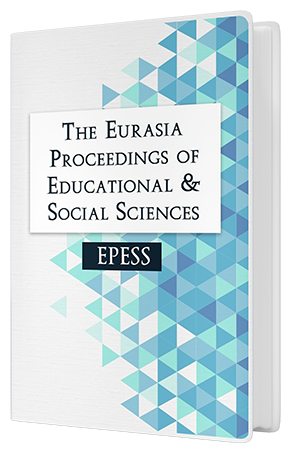Mathematics Teachers' Usage of Inclusive Instructional Activities in Some Special Schools in Ibadan, Oyo State
Keywords:
Mathematics Teachers' Usage of Inclusive Instructional Activities in Some Special Schools in IbadanAbstract
Inclusive Education (IE) is a new approach towards educating the students with disability and learning difficulties with that of normal ones within the same classroom. It brings all students together in one classroom and community, regardless of their strengths or weaknesses in any area, and seeks to maximise the potential of all students. It is one of the most effective ways in which to promote an inclusive and tolerant society. It is known that 73 million children of primary school age were out of school in 2010, down from a high of over 110 million out-of-school children in the mid-1990s, according to new estimates by the UNESCO Institute for Statistics (UIS). This study, therefore, was carried out to investigate the level and extent of mathematics teacher usage of inclusive instructional activities in their teaching delivery in some special schools in Ibadan, Oyo state. The objective of which to cater for students with special educational needs. The respondents were 11 mathematics teachers from four purposive selected junior secondary schools co-habitating students with and without special educational needs. The results reveal that mathematics teachers do not use inclusive instructional activities. The extent, awareness and level of usage was low. The study, therefore, recommends among others that mathematics teachers should be trained to use inclusive instructional activities that incorporate the inclusion of students in special schools.Downloads
Published
Issue
Section
License
Copyright (c) 2018 The Eurasia Proceedings of Educational and Social Sciences

This work is licensed under a Creative Commons Attribution-NonCommercial-ShareAlike 4.0 International License.
The articles may be used for research, teaching, and private study purposes. Any substantial or systematic reproduction, redistribution, reselling, loan, sub-licensing, systematic supply, or distribution in any form to anyone is expressly forbidden. Authors alone are responsible for the contents of their articles. The journal owns the copyright of the articles. The publisher shall not be liable for any loss, actions, claims, proceedings, demand, or costs or damages whatsoever or howsoever caused arising directly or indirectly in connection with or arising out of the use of the research material. All authors are requested to disclose any actual or potential conflict of interest including any financial, personal or other relationships with other people or organizations regarding the submitted work.




